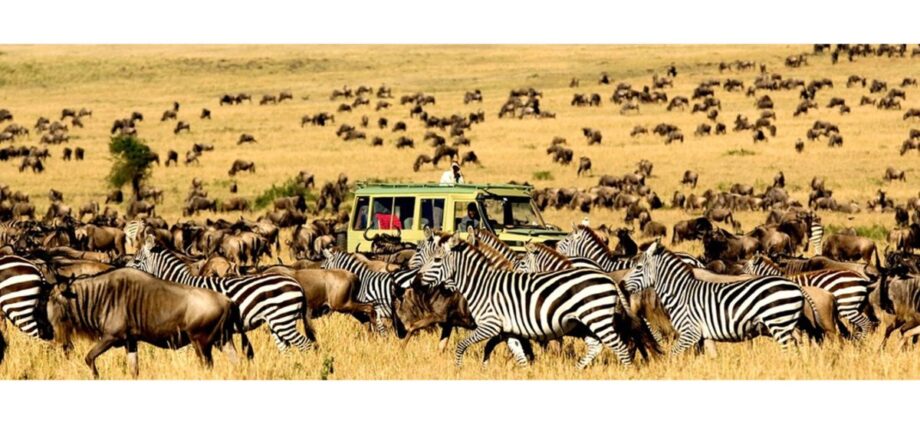This includes having adequate supply of skilled manpower and capital for infrastructure development, reducing multiplicity in levies and taxes as well as diversified tourism products and sourcing cheap financing.
The suggestions are according to analysis by Breakthrough Attorney and PwC Tanzania dubbed: ‘Investment update: A look into the tourism sector in Tanzania – policy, law, incentive, and strategy,’ and ‘The future of Tourism in Tanzania,’ respectively.
Breakthrough was of the view that inadequate skilled manpower, affects the handling of both the wildlife and tourists management at the hotel level, thus negatively affecting the quality of customer service rendered to tourists.
On the other hand, with lacking investment capital as far as developing the sector’s infrastructures which includes roads, decent accommodation facilities, and investing into researching, and other such environment, it is harder for the sector to thrive.
Other areas that legal experts think should be appropriately addressed for the sector to flourish, include addressing poaching issues as the awful act reduces the number of animals in National parks and Game reserves.
But Ms Zainab Msimbe, a partner with PwC Tanzania doubts the sector’s competitiveness and sustainability as it faces persisted bottlenecks that need to be tackled if the sector is to be improved.
“These include limited access to cheap financing, inadequate tourism infrastructure, a multiplicity of levies, insufficient diversity in product offerings, and lack of sufficient hotel and airport facilities,” she said.
According to her, Tanzania needs to re-examine its tourism taxes and levies so as to reduce multiplicity and create competitiveness across the region as the country is deemed to be an expensive destination compared with South Africa and Kenya.
Tanzania ranks higher than Kenya with respect to safety and security, but lower than Kenya when it comes to tourist service infrastructure.
“For instance, the drive from Dar es Salaam to Selous Game Reserve, the largest game reserve in Africa, is bumpy and long, taking an average of 7-8 hours,” the report reads in part.
Therefore, the study adds: “Flying is a better option and the fastest way to get to Selous. However, it is the most expensive and hence suits more high-end tourists.”
On the other hand, more effort is required to attract private sector investment in hotels and ensure diversity in the offered services.
The current hotel capacity in Mainland and Zanzibar cannot cater for the expected influx of 5 million tourists by 2025, and that improvement in efficiencies and flight handling capacity at the airports is another area which requires fixing.
Automation of immigration procedures in Zanzibar and Kilimanjaro Airports will help fast track the process. Instead of having a paperwork checking system, barcodes should be set to scan all the documents. This will help to reduce unnecessary queues at the airports during high season.
Other than wildlife and beaches, the Ministry for Tourism should spearhead the innovation of new tourist attractions.
Media reports indicate that major source markets for Tanzania’s international tourism are the USA, which accounts for 13.2 percent, the UK representing at least 9.5 percent, with the remaining percentage representing other countries.
Data captured by the immigration department by August this year, indicates that in the period between January to July this year, Tanzania registered 742,133 tourists, a 62.7 percent increase compared to the same period last year. It is noted that Tanzania ranked tenth among fifty African countries in tourism growth. By, April 2020, tourism earnings accounted for more than 24 percent of the total share of exports, making tourism the second largest foreign exchange earner after agriculture.
Share this news
This Year’s Most Read News Stories

Mbeto on Mwinyi: He created today’s affluent people
The CCM Secretary of Ideology and Publicity (Zanzibar), Mr Khamis Mbeto Khamis, said the late President Ali Hassan Mwinyi was the architect of the current class of affluent people.Continue Reading

ACT-Wazalendo calls for withdrawal of mandatory travel insurance in Zanzibar
Starting October 1, all visitors to Zanzibar will be required to purchase a mandatory travel insurance policy costing $44 at the point of entryContinue Reading

Air Tanzania Banned From EU Airspace Due to Safety Concerns
Several airports have since locked Air Tanzania, dealing a severe blow to the Tanzanian national carrier that must now work overtime to regain its certification or go the wet lease way
The European Commission has announced the inclusion of Air Tanzania on the EU Air Safety List, effectively banning the airline from operating in European airspace.
The decision, made public on December 16, 2024, is based on safety concerns identified by the European Union Aviation Safety Agency (EASA), which also led to the denial of Air Tanzania’s application for a Third Country Operator (TCO) authorisation.
The Commission did not go into the specifics of the safety infringement but industry experts suggest it is possible that the airline could have flown its Airbus A220 well past its scheduled major checks, thus violating the airworthiness directives.
“The decision to include Air Tanzania in the EU Air Safety List underscores our unwavering commitment to ensuring the highest safety standards for passengers in Europe and worldwide,” said Apostolos Tzitzikostas, EU Commissioner for Sustainable Transport and Tourism.
“We strongly urge Air Tanzania to take swift and decisive action to address these safety issues. I have offered the Commission’s assistance to the Tanzanian authorities in enhancing Air Tanzania’s safety performance and achieving full compliance with international aviation standards.”
Air Tanzania has a mixed fleet of modern aircraft types including Boeing 787s, 737 Max jets, and Airbus A220s.
It has been flying the B787 Dreamliner to European destinations like Frankfurt in Germany and Athens in Greece and was looking to add London to its growing list with the A220.
But the ban not only scuppers the London dream but also has seen immediate ripple effect, with several airports – including regional like Kigali and continental – locking out Air Tanzania.
Tanzania operates KLM alongside the national carrier.
The European Commission said Air Tanzania may be permitted to exercise traffic rights by using wet-leased aircraft of an air carrier which is not subject to an operating ban, provided that the relevant safety standards are complied with.
A wet lease is where an airline pays to use an aircraft with a crew, fuel, and insurance all provided by the leasing company at a fee.
Two more to the list
The EU Air Safety List, maintained to ensure passenger safety, is updated periodically based on recommendations from the EU Air Safety Committee.
The latest revision, which followed a meeting of aviation safety experts in Brussels from November 19 to 21, 2024, now includes 129 airlines.
Of these, 100 are certified in 15 states where aviation oversight is deemed insufficient, and 29 are individual airlines with significant safety deficiencies.
Alongside Air Tanzania, other banned carriers include Air Zimbabwe (Zimbabwe), Avior Airlines (Venezuela), and Iran Aseman Airlines (Iran).
Commenting on the broader implications of the list, Tzitzikostas stated, “Our priority remains the safety of every traveler who relies on air transport. We urge all affected airlines to take these bans seriously and work collaboratively with international bodies to resolve the identified issues.”
In a positive development, Pakistan International Airlines (PIA) has been cleared to resume operations in the EU following a four-year suspension. The ban, which began in 2020, was lifted after substantial improvements in safety performance and oversight by PIA and the Pakistan Civil Aviation Authority (PCAA).
“Since the TCO Authorisation was suspended, PIA and PCAA have made remarkable progress in enhancing safety standards,” noted Tzitzikostas. “This demonstrates that safety issues can be resolved through determination and cooperation.”
Another Pakistani airline, Airblue Limited, has also received EASA’s TCO authorisation.
Decisions to include or exclude airlines from the EU Air Safety List are based on rigorous evaluations of international safety standards, particularly those established by the International Civil Aviation Organization (ICAO).

Sign up for free AllAfrica Newsletters
Get the latest in African news delivered straight to your inbox
The process involves thorough review and consultation among EU Member State aviation safety experts, with oversight from the European Commission and support from EASA.
“Where an airline currently on the list believes it complies with the required safety standards, it can request a reassessment,” explained Tzitzikostas. “Our goal is not to penalize but to ensure safety compliance globally.”
Airlines listed on the EU Air Safety List face significant challenges to their international operations, as the bans highlight shortcomings in safety oversight by their home regulatory authorities.
For Air Tanzania, this inclusion signals an urgent need for reform within Tanzania’s aviation sector to address these deficiencies and align with global standards.
The path forward will require immediate and sustained efforts to rectify safety concerns and regain access to one of the world’s most critical aviation markets.
Source: allafrica.com











